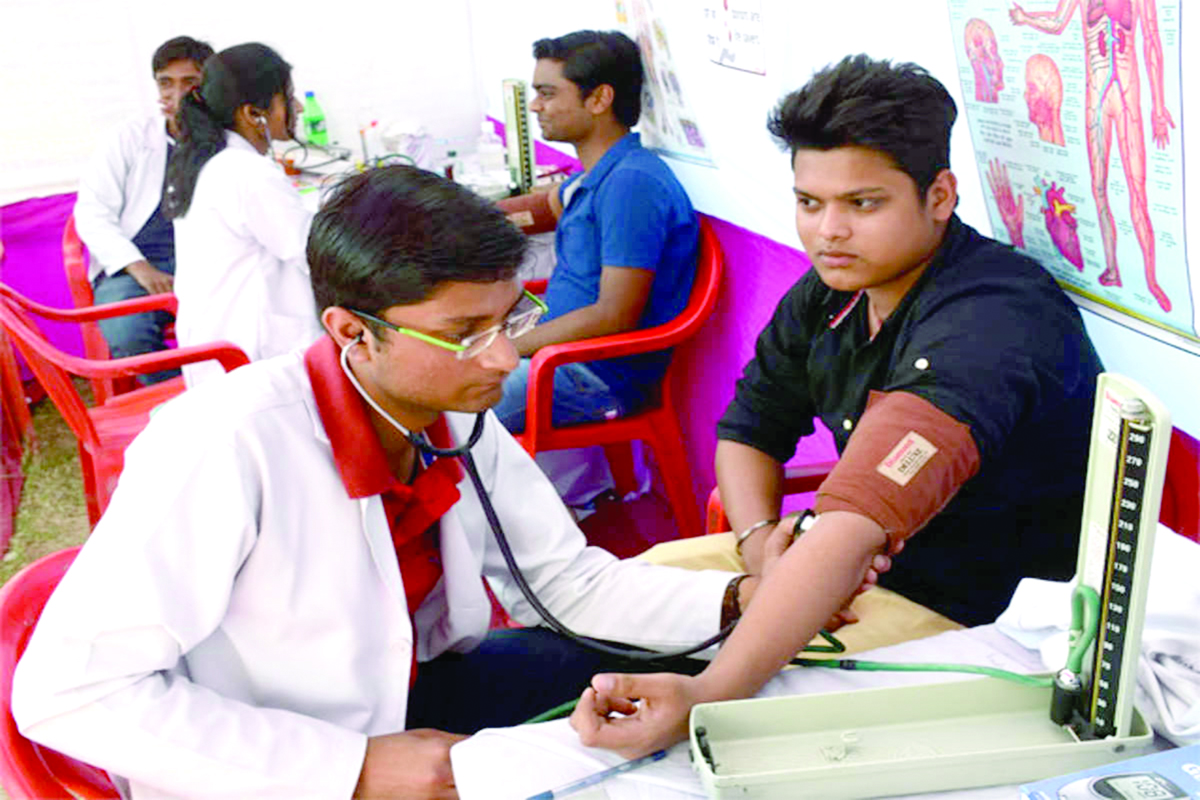Medical team visits house of suspected silicosis death victim
The National Human Rights Commission (NHRC) has already directed the district magistrate of West Burdwan to submit a detailed report within eight weeks.
Medical students need practical learning and simulation-based training to tackle the overburdened healthcare sector of India
AMIT SHARMA | KOLKATA | August 31, 2021 12:30 am

The Covid-19 pandemic caused a public health emergency, which significantly impacted the social, economic and health sectors. It taught us the value of sustainable health systems in India.
Today, India is considered the hub of medical tourism for its quality and pocket-friendly healthcare facilities. People from across the world visit health and treatment-cum-leisure centres in the country to cure their ailments. India has emerged as a preferable spot to consolidate leisure trips with healthcare services, making both its hospitality and health sector major drivers in the rapid expansion of medical tourism.
The Indian medical education system is one of the largest, internationally. The base of sustainable health systems is medical education and training. With all education shifting to the online medium, the pandemic brought about a paradigm shift in medical education and training as well. Many medical universities have dropped face-to-face lectures, clinical postings, practical classes and demonstrations, and introduced online classes.
The current scenario has posed a burden on medical education as it involves a lot of practical learning and simulation-based training. Students are missing the opportunity to learn from first-hand clinical observation that will aid them to handle patients in future. The lack of practical training and clinical observation has threatened to lower quality.
Here are some of the factors that contribute to the burden faced by the medical education and training sector of India:
Lack of practical learning
Medical students aspiring to be surgeons must study anatomy, physiology and biochemistry in the first of the five-and-a-half year curriculum. Right from the first year they need to visit the dissection hall every day to learn about human anatomy.
Practical learning is something that cannot be imparted online as those sessions help understand the intricate structure of the human body. Additionally, it’s also the foundation to learn advanced subjects like orthopaedics and surgery.
Medical training is also supplemented by practical classes, demonstrations, seminars, small group tutorials and hospital visits, now totally cut off. As a result, the “learning by doing” methodology gets eliminated.
Clinical postings help budding doctors learn how to examine a case history, identify signs and symptoms, interact with patients, and observe individual cases while on clinical rounds. Coping with such academic loss has become a stressful situation for them.
Advertisement
Inadequate training
Students in the advanced stages of training are at a significant loss. Trainees usually apply their skills under the guidance of senior doctors and specialists. But now they are burdened with the entire responsibility along with extra duty, even before completing their internships.
Such huge accountability coupled with the feeling of inadequate training might lead to a lack of confidence in operating on patients if apprenticeship is omitted.
Advertisement
Psychological impact
All frontline workers are vulnerable to psychological distress faced during such unprecedented times. Medical students, who are also practicing, often lack access to mental health support for Covid-19 that is otherwise available to healthcare workers.
Inaccessibility
Students from rural areas or financially disadvantaged backgrounds cannot engage in online learning due to poor Internet connection and the unavailability of necessary tools and infrastructure. It deprives them of proper guidance despite being talented and deserving.
Also, international students who have returned to their home countries are cut off from their classmates. Travel restrictions and prolonged courses can incur a financial burden on them. Inability to access the clinical environment for training also poses a challenge.
Solutions
Bringing in simulator methods to incorporate practical training for medical students is of utmost necessity. Semesters need to be extended to provide adequate time to complete clinical rounds. Postponing exams to give adequate time for preparation is required. Also, it is important to allow students to retake both written and oral examinations if necessary, as the pandemic situation may withhold them from reaching their full academic potential. Increased scholarship and other economic support should be given to needy students.
Medical schools face severe challenges in adjusting to the online format and the technological progression of the healthcare system, while sustaining excellence in education. The pandemic has left the country’s healthcare system stressed and put it to an endurance test.
It is time to critically analyse the existing structural and systemic challenges of medical education and come up with the best solution for the betterment of society. The future of healthcare in India will depend on how one can implement solutions effectively to mitigate the damage caused by the pandemic. The government should take collective, concrete steps to help students cope with academic loss, stress and anxiety among other critical issues.
Advertisement
The National Human Rights Commission (NHRC) has already directed the district magistrate of West Burdwan to submit a detailed report within eight weeks.
The Haripal Sramajibi Hospital first started rendering medical treatment from 16 April, 2023 with a total capacity of 30 beds.
The organ donation landscape in India is fraught with challenges, leading to a dire shortage of cadaver organ donations.
Advertisement
